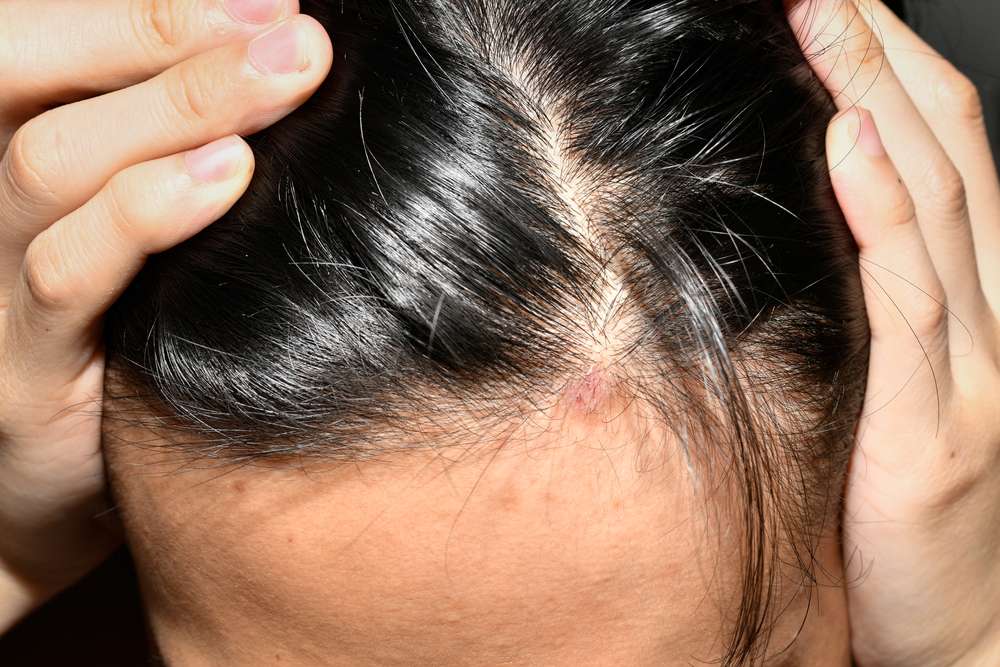Scalp Psoriasis Explained: Symptoms, Causes, and Relief Options
Scalp psoriasis is a chronic skin condition that can cause itching, flaking, and discomfort. In this article, we explore the key symptoms, possible causes, and treatment options that can help manage flare-ups and improve your quality of life without making exaggerated claims.

Scalp psoriasis is a common form of psoriasis that specifically targets the scalp area, creating distinctive symptoms that can range from mild irritation to severe discomfort. This autoimmune condition occurs when the immune system mistakenly attacks healthy skin cells, causing them to multiply rapidly and form thick, scaly patches.
What Are the Common Symptoms of Scalp Psoriasis?
Scalp psoriasis presents several characteristic symptoms that distinguish it from other scalp conditions. The most noticeable signs include red, inflamed patches covered with silvery-white scales that may flake off like dandruff. These patches can appear anywhere on the scalp and may extend to the forehead, neck, and behind the ears. Many people experience intense itching, which can lead to scratching and potential bleeding. Hair loss may occur in severely affected areas, though it typically grows back once the condition is under control. The scaling can be so significant that it becomes visible on clothing and shoulders.
What Triggers Scalp Psoriasis Flare-Ups?
Several factors can trigger or worsen scalp psoriasis symptoms. Stress is one of the most common triggers, as it can weaken the immune system and exacerbate autoimmune responses. Infections, particularly strep throat, can also trigger flare-ups in susceptible individuals. Weather changes, especially cold and dry conditions, often worsen symptoms. Certain medications, including lithium, beta-blockers, and antimalarial drugs, may trigger episodes. Physical trauma to the scalp, such as cuts, burns, or excessive scratching, can cause new patches to develop. Hormonal changes during pregnancy or menopause may also influence symptom severity.
What Are the Most Effective Treatment Options for Scalp Psoriasis?
Treatment approaches for scalp psoriasis vary depending on severity and individual response. Topical treatments form the first line of defense and include corticosteroid shampoos, creams, and solutions that reduce inflammation and slow skin cell production. Coal tar preparations have been used for decades and remain effective for many patients. Salicylic acid helps remove scales and allows other medications to penetrate better. For moderate to severe cases, phototherapy using ultraviolet light can be beneficial. Systemic medications, including oral drugs and biologics, may be prescribed for severe cases that don’t respond to topical treatments.
How Can You Manage Scalp Psoriasis Flare-Ups at Home?
Home management strategies can significantly complement medical treatments and help prevent flare-ups. Gentle hair care practices are essential, including using mild, fragrance-free shampoos and avoiding harsh chemicals or excessive heat styling. Regular moisturizing with appropriate scalp treatments helps maintain skin barrier function. Stress management techniques such as meditation, yoga, or regular exercise can reduce trigger episodes. Maintaining a healthy diet rich in anti-inflammatory foods may also help. Some people find relief with natural remedies like aloe vera, tea tree oil, or oatmeal treatments, though these should complement rather than replace medical treatments.
Which Scalp Psoriasis Treatments Are Most Commonly Prescribed by Dermatologists?
Dermatologists typically follow a stepped approach when prescribing treatments for scalp psoriasis. Topical corticosteroids remain the most commonly prescribed first-line treatment due to their effectiveness in reducing inflammation and itching. Vitamin D analogs like calcipotriene are frequently prescribed either alone or in combination with corticosteroids. For patients with thick scaling, keratolytic agents containing salicylic acid or urea are often recommended. In cases where topical treatments prove insufficient, dermatologists may prescribe systemic medications such as methotrexate, cyclosporine, or newer biologic drugs that target specific immune system components.
| Treatment Type | Provider/Brand | Cost Estimation |
|---|---|---|
| Prescription Shampoos | Clobex, Olux-E | $150-300 per bottle |
| Topical Corticosteroids | Dovonex, Taclonex | $200-400 per tube |
| Coal Tar Products | Neutrogena T/Gel, DHS Tar | $10-25 per bottle |
| Biologic Medications | Humira, Stelara | $5,000-8,000 per month |
| Phototherapy Sessions | Dermatology clinics | $75-150 per session |
Prices, rates, or cost estimates mentioned in this article are based on the latest available information but may change over time. Independent research is advised before making financial decisions.
Managing scalp psoriasis requires a comprehensive approach that combines medical treatment with lifestyle modifications. While the condition can be challenging to live with, understanding its symptoms, identifying personal triggers, and working with healthcare providers to develop an effective treatment plan can lead to significant improvement in both symptoms and quality of life. Regular follow-up with dermatologists ensures that treatment plans remain effective and can be adjusted as needed to maintain optimal scalp health.
This article is for informational purposes only and should not be considered medical advice. Please consult a qualified healthcare professional for personalized guidance and treatment.




